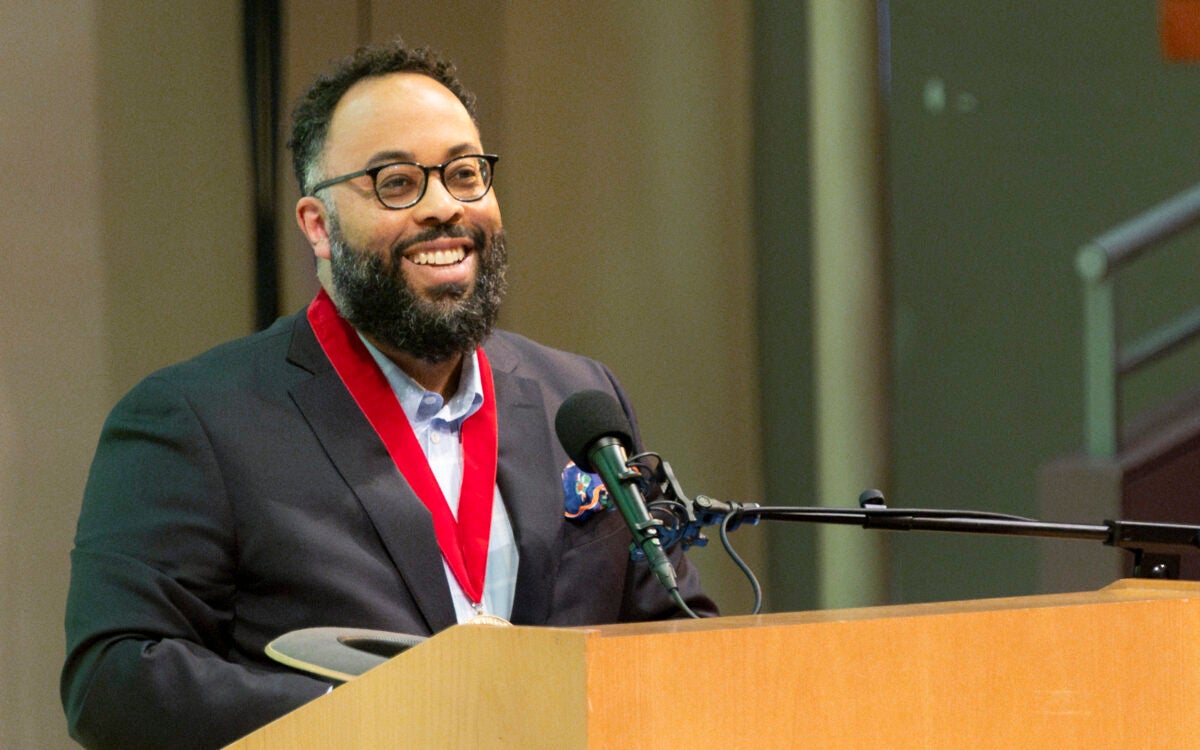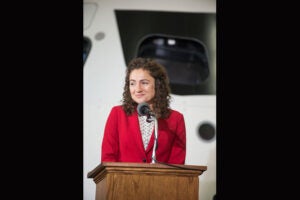Tag: NASA
-
Nation & World
The trouble with Kepler
A malfunction aboard NASA’s Kepler Space Telescope has jeopardized what has been one of the agency’s highest-profile missions, one that has revealed a galaxy rich with planets. The Gazette talked to Astronomy Professor Dimitar Sasselov, one of the mission’s principal investigators, about the implications.
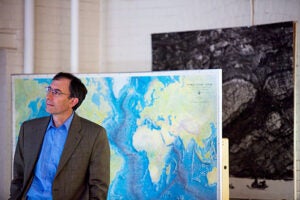
-
Nation & World
Cutting costs, buoying health care
A Harvard Medical School lecturer and former head of the federal agency overseeing Medicare and Medicaid shared his experiences pushing for improved health care quality, saying that teamwork, cost curtailment, and a focus on patients are keys to success.
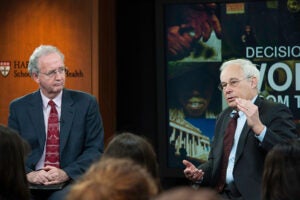
-
Nation & World
Capturing the stars
Alex Parker, a postdoctoral fellow at the Harvard-Smithsonian Center for Astrophysics, sees astronomical data as art as well as science.
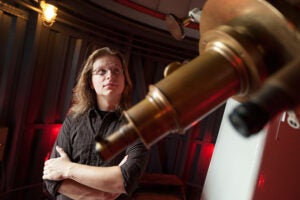
-
Nation & World
A Milky Way cooling its jets
Harvard-Smithsonian Center for Astrophysics’ astronomers have detected for the first time jets of gamma rays extending thousands of light years from the Milky Way’s core, confirming expectations based on observations of other galaxies.
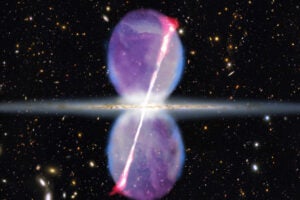
-
Nation & World
Magnetism on the moon
A team of researchers from Harvard, MIT, and the Institut de Physique du Globe de Paris have proposed a surprisingly simple explanation for magnetic anomalies that have baffled scientists since the mid-1960s, suggesting they are remnants of a massive asteroid. As described in a paper published in Science, the researchers believe an asteroid slammed into…
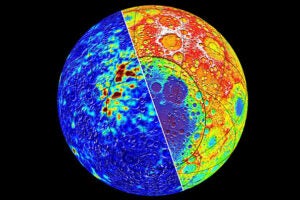
-
Nation & World
Black hole came from shredded galaxy
Astronomers using NASA’s Hubble Space Telescope have found a cluster of young, blue stars encircling the first intermediate-mass black hole ever discovered. The presence of the star cluster suggests that the black hole was once at the core of a now-disintegrated dwarf galaxy.
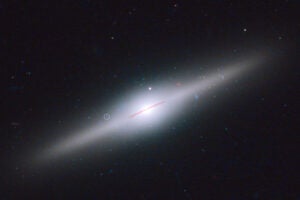
-
Nation & World
Alien worlds, just like home
Harvard astronomers, working as part of NASA’s Kepler mission, have detected the first Earth-sized planets orbiting a distant star, a milestone in the hunt for alien worlds that brings scientists one step closer to their ultimate goal of finding a twin Earth.
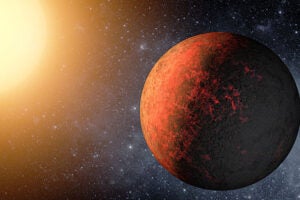
-
Nation & World
Powerful telescope has scientists seeing red
In the distant reaches of the universe, almost 13 billion light-years from Earth, a strange species of galaxy lay hidden. Cloaked in dust and dimmed by the intervening distance, even the Hubble Space Telescope couldn’t spy it. It took the revealing power of NASA’s Spitzer Space Telescope to uncover not one, but four remarkably red…
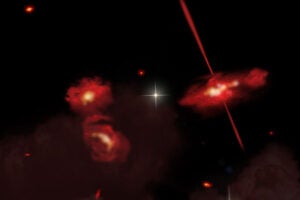
-
Nation & World
A tool to touch the sun
Harvard-Smithsonian Center for Astrophysics researcher Justin Kasper has designed an instrument that will peek out from behind a heat shield to touch the sun’s atmosphere on a NASA solar probe designed to get far closer to the sun than any before.
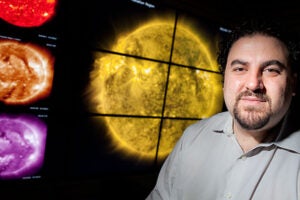
-
Nation & World
Bone loss study takes flight
When the final mission of NASA’s 30-year Space Shuttle program is launched on Friday (July 8), an animal experiment to test a novel therapy to increase bone mass will be on board. Harvard Medical School Asssistant Professor Mary Bouxsein is among the lead researchers.
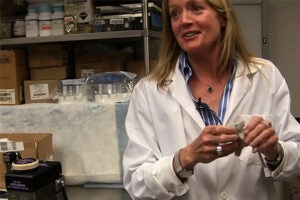
-
Nation & World
Leadership Initiative Fellow Bolden nominated to lead NASA
Retired Marine Maj. Gen. and former astronaut Charles Bolden was nominated to be the head of NASA on Saturday (May 23), interrupting his stay at Harvard as anAdvanced Leadership Fellow.
-
Nation & World
Mars’ water appears to have been too salty to support life
A new analysis of the Martian rock that gave hints of water on the Red Planet — and, therefore, optimism about the prospect of life — now suggests the water was more likely a thick brine, far too salty to support life as we know it. The finding, by scientists at Harvard University and Stony…
-
Nation & World
Astronaut, volunteer Stephanie D. Wilson honored
NASA astronaut Stephanie D. Wilson ’88 was awarded the Women’s Professional Achievement Award at the 11th annual Harvard College Women’s Leadership Awards ceremony held April 3 at the Charles Hotel in Harvard Square. Additionally, Harvard senior Katherine Beck received the Women’s Leadership Award. Both honors were presented by the Harvard College Women’s Center.
